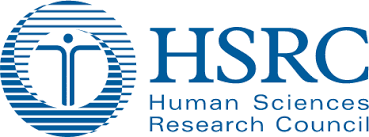Programme / Thematic session IV/b Different lens, better outcomes? Intersectionality as a critical component of gender transformative research
‹ back to Programme listerDay
Thursday / 8 DEC
17:00 - 18:30
This moderated panel unpacks intersectionality as an essential conceptual tool in gender transformative research, while providing practical examples of how researchers and grantmakers have adopted this framework to advance science in the service of social justice. Intersectionality deepens understanding of the interplay between people’s diverse identities and experiences, to explore how this interplay shapes and mutually reinforces oppression and exclusion. It expands the focus on gender to also recognise overlapping inequalities related to other forms of diversity, such as age, race, class, (dis)ability and sexuality, amongst others, that create and perpetuate marginalisation. The framework has gained traction as a tool to support relevant, equitable and just science for the benefit of all.
Addressing gender disparities in science is not only a question of rights and justice, but helps to produce more inclusive teams in organisations, higher quality research, and greater relevance and impact of research and innovation. Further to this, gender-disaggregated data and robust indicators that reflect the diversity of people’s experiences of inequality are imperative in meeting development goals. Quality data to monitor the attainment of gender-related Sustainable Development Goals is, however, frequently non-existent and data that attend to marginalisation based on diversity beyond gender even more scarce.
This session shares findings from a mixed-methods project exploring if, how and with what effects an intersectional framework has been adopted throughout the grant-making, human capital development and research cycles. The discussion is rooted in the socio-cultural and economic contexts in which knowledge production on the continent takes place, while extracting universal principles of global relevance. Respondents include researchers, Science Granting Councils and donors to offer a compelling case for the crucial role of intersectional gender transformation in advancing research quality and impact.
Moderator:
Speakers:
- Ingrid Lynch, , Human Sciences Research Council
- Heidi van Rooyen, Group Executive, Impact Centre, Human Sciences Research Council (HSRC)
- Dorothy Ngila, Director: Strategic Partnerships , National Research Foundation, South Africa
- Isabella Schmidt, Regional Gender Statistics Advisor for East and Southern Africa, UN Women
- Thomas Thayer, , Elsevier
- Lilian Hunt, Equality, Diversity and Inclusion in Science and Health Lead, Wellcome
